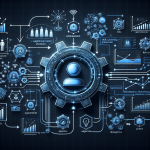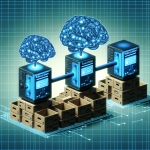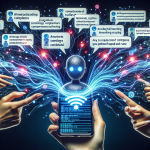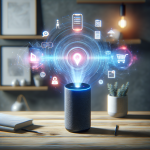Introduction to AI Tools for Enhancing Marketing Productivity
In today’s digital-first business environment, marketing teams are constantly under pressure to deliver more personalized, data-driven, and high-impact campaigns—faster than ever. Fortunately, artificial intelligence (AI) tools are transforming the marketing landscape, boosting productivity, reducing manual workloads, and optimizing campaign performance. From automated analytics to intelligent content generation, AI-powered tools are becoming indispensable assets for forward-thinking marketing teams.
Why AI Matters in Marketing
AI brings scalability, efficiency, and precision to marketing operations. Where manual analysis and execution may take hours or days, AI can process data and deliver actionable insights in minutes. By integrating AI into their workflows, marketers can:
- Automate repetitive tasks like email segmentation and social media posting
- Analyze large data sets to identify trends and customer behavior
- Personalize messaging at scale
- Improve lead scoring and customer targeting
- Free up time for strategic and creative work
Top AI Tools That Empower Marketing Teams
Here’s a breakdown of some of the most effective AI tools that can supercharge a marketing team’s productivity:
1. ChatGPT and Generative AI Content Tools
OpenAI’s ChatGPT and other generative AI platforms like Jasper and Copy.ai allow marketers to create high-quality content at scale. These tools assist with:
- Blog post and article generation
- Ad copywriting and A/B test variations
- Email subject line optimization
- Social media post creation
By leveraging machine learning models trained on massive datasets, these tools generate human-like text based on prompts, helping marketers produce more content in less time.
2. AI-Powered Email Marketing Platforms
Platforms such as Mailchimp, ActiveCampaign, and Salesforce Marketing Cloud use AI to optimize email performance. Key features include:
- Predictive send-time optimization
- Dynamic content personalization
- Automated subscriber segmentation
- A/B testing enhanced with machine learning insights
These features enable marketing teams to improve open and click-through rates while spending less time manually managing campaigns.
3. Social Media Management with AI
Tools like Buffer, Hootsuite, and Lately utilize AI to streamline social media activity. Functionalities include:
- Content scheduling suggestions based on engagement data
- Natural language processing for sentiment analysis
- Automatic hashtag and keyword generation
- AI-generated social content from existing assets
This automation enables marketing teams to stay consistent with brand messaging and engagement without requiring constant manual effort.
4. AI for SEO and Content Optimization
Search engine visibility remains a cornerstone of digital marketing. AI tools such as Clearscope, MarketMuse, and SurferSEO aid productivity by:
- Providing real-time optimization suggestions for content
- Analyzing competitor keyword usage
- Identifying high-performing topics
- Generating SEO-friendly outlines and summaries
These tools eliminate the guesswork from content creation and ensure that publications are structured for maximum search engine impact.
5. Predictive Analytics and Customer Insights
Understanding customer behavior is critical for tailored marketing strategies. AI platforms like IBM Watson, Adobe Sensei, and Google Analytics 4 integrate predictive models that:
- Forecast buying patterns
- Identify at-risk customers and churn likelihood
- Segment audiences based on AI-analyzed behavior
- Tailor marketing messages based on likely outcomes
Such insights empower marketing teams to make data-driven decisions that increase ROI and campaign effectiveness.
Best Practices for Integrating AI in Marketing Teams
While AI offers impressive enhancements, seamless integration is essential for success. Here are a few best practices:
- Start Small: Implement AI in one or two key functions before full-scale adoption.
- Train Your Team: Ensure team members understand how to work with and maximize AI tools.
- Maintain Oversight: AI should assist— not replace—human creativity and strategy.
- Measure Impact: Continue to evaluate how AI tools affect performance metrics and productivity.
Conclusion: AI as a Competitive Edge in Modern Marketing
AI tools are rapidly evolving from optional add-ons to foundational elements in modern marketing stacks. By embracing these technologies, marketing teams can not only boost productivity but also deliver more targeted, creative, and data-informed campaigns. As the landscape grows more competitive, those who harness the full power of AI will be best positioned to lead their industries.






